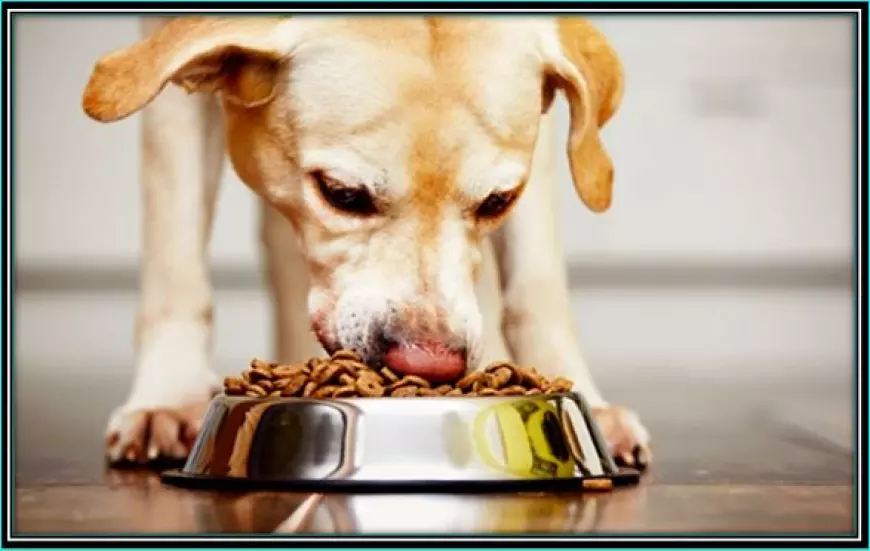Is Grain-Free Food Really Better for My Dog's Health?
Don't miss out on the truth behind grain-free dog food! Learn why it may be a game-changer for your pup's health and happiness.

The rise in popularity of grain-free dog food
One of the most notable trends in the pet food industry is the rise in popularity of grain-free dog food. Dog owners are increasingly opting for this type of diet, believing it to be a healthier choice for their canine companions. The idea behind grain-free dog food is to mimic a more natural and ancestral diet for dogs, which would primarily consist of meat and vegetables rather than grains such as corn or wheat.
Proponents argue that eliminating grains can have several potential health benefits for dogs. Firstly, grains are known allergens for some dogs, so by excluding them from their diets, owners may see an improvement in skin conditions and digestive issues. Additionally, grain-free dog foods often contain higher levels of protein from animal sources, which can promote muscle development and overall vitality.
However, it's important to note that not all experts agree on the benefits of feeding dogs a grain-free diet. Some veterinarians argue that unless a dog has a confirmed allergy or intolerance to grains, there is no inherent advantage to feeding them grain-free food. They emphasize that what matters most is providing a well-balanced diet with adequate nutrition regardless of whether it includes grains or not.
As always when considering dietary changes for your dog, it's essential to consult with your veterinarian before making any significant adjustments or switching to a grain-free diet solely based on popular trends. Your vet will help you assess your dog's individual needs and determine what type of diet will support their optimal health and well-being.
What is grain-free dog food?
Grain-free dog food has gained popularity in recent years as pet owners become more conscious of their furry friend's dietary needs. This type of dog food eliminates grains such as wheat, corn, and soy from its ingredients list. Instead, it relies on alternative sources of carbohydrates like sweet potatoes and quinoa to provide energy for our four-legged companions.
One of the main reasons people opt for grain-free dog food is the belief that dogs are better suited to a diet without grains. While dogs are technically capable of digesting grains, some may have sensitivities or allergies to certain types. By eliminating grains, pet owners hope to alleviate any potential digestive issues and improve their dog's overall health.
Despite these claims, there is still ongoing debate among veterinarians about the benefits and drawbacks of grain-free diets for dogs. Some argue that grains can actually be a valuable source of nutrients and fiber for dogs when included in appropriate amounts and quality. Additionally, recent studies have linked specific brands of grain-free dog food with cases of a heart condition called dilated cardiomyopathy (DCM) in certain breeds.
Ultimately, the decision whether to feed your dog a grain-free diet should be based on careful consideration and consultation with your veterinarian. Each dog is unique, and what works well for one may not suit another. It's crucial to weigh both the potential benefits and risks before making any changes to your pup's eating habits, ensuring they receive proper nutrition tailored specifically to their individual needs.
The potential benefits of grain-free dog food
The rising popularity of grain-free dog food has sparked a debate among pet owners and veterinarians alike, with some praising its potential benefits and others questioning its overall impact on dogs' health. While grains have long been a staple in many commercial dog foods, advocates for grain-free diets argue that dogs are better off without them. One potential benefit is improved digestion, as grains can be difficult for some dogs to break down properly. By removing grains from their diet, dog owners may notice an improvement in their pet's overall gastrointestinal health and fewer issues such as vomiting or diarrhea.
Aside from digestive health, another potential benefit of grain-free dog food is the reduced risk of allergies or sensitivities. Some dogs are highly allergic to certain grains such as corn or wheat, which can manifest in symptoms like itching, skin irritations, or even chronic ear infections. Grain-free diets eliminate these problematic ingredients altogether and may provide relief for allergic dogs.
While more research is needed to fully understand the long-term effects of grain-free diets on canine health, it's worth considering these potential benefits when deciding what food to feed your furry friend. It's essential to consult with a veterinarian before making any dietary changes, especially if your dog has pre-existing medical conditions or specific dietary restrictions.

The potential risks of grain-free dog food
Grain-free dog food has gained immense popularity in recent years, with many pet owners believing that eliminating grains from their furry friend's diet can improve overall health. However, there are potential risks and downsides to consider when it comes to grain-free diets for dogs. One of the main concerns is the potential for nutritional imbalances. Grains such as wheat, corn, and soy provide essential nutrients like carbohydrates and fiber that play a crucial role in a dog's diet. Removing these grains without appropriate substitutions may result in an imbalance of nutrients, leading to deficiencies or excesses.
Additionally, grain-free diets often use alternative carbohydrate sources like potatoes, peas, or lentils. While these ingredients may seem healthier at first glance due to their natural origin, they can pose issues as well. Some dogs may have difficulty digesting these alternative carbohydrates properly since they are not inherently part of their evolutionary diet. This could lead to digestive issues such as gas or loose stools.
Lastly, it is important to note that not all grain-free dog foods are created equal. Many commercial brands promoting grain-free options might contain increased levels of other potentially harmful ingredients such as artificial additives or fillers that can harm your dog's health over time. Therefore, it is essential to meticulously read and understand the ingredient labels when choosing a grain-free dog food option for your pet.
In conclusion, while grain-free dog food may have its benefits for specific dogs with certain dietary restrictions or allergies, it is crucial to approach this trend with caution.
Considerations before switching to grain-free
While grain-free diets have gained popularity among dog owners in recent years, it's important to approach the switch with careful consideration. While some dogs may benefit from a grain-free diet, it is not necessarily the best option for every pup. Before making the switch, it's crucial to consult with your veterinarian to determine whether your dog has any specific dietary needs or sensitivities.
One key consideration when switching to a grain-free diet is that not all grains are inherently unhealthy for dogs. Grains like rice and oatmeal can provide valuable nutrients and fiber to support your dog's digestive health. Therefore, eliminating all grains from their diet may not be necessary unless there is a specific reason to do so.
Additionally, it's worth noting that not all grain-free foods are created equal. Some alternative ingredients used in grain-free diets, such as potatoes or legumes, can increase the risk of certain health issues like heart disease in some dogs. It's essential to carefully read food labels and choose reputable brands that prioritize nutrition and balance when formulating their products.
Conclusion: Making the best choice for your dog's health
In conclusion, when it comes to making the best choice for your dog's health, it is important to consider their individual needs and preferences. While grain-free food may not be inherently better for all dogs, it can be beneficial for some. Consulting with a veterinarian is crucial in order to determine if your dog has any specific dietary requirements or sensitivities. Additionally, paying attention to the quality of ingredients and avoiding fillers and additives can greatly improve your pet's overall well-being.
It is also worth noting that a balanced diet goes beyond just eliminating grains. Ensuring that your dog receives the right balance of protein, fats, carbohydrates, vitamins, and minerals is essential for their optimal health. This means looking at the overall nutritional profile of a food rather than solely focusing on whether it contains grains or not.
As pet owners, we all want the best for our furry friends. From trendy accessories to top-notch grooming services, we go above and beyond to ensure their well-being. But when it comes to their diet, the choices can be overwhelming. One particular trend that has gained traction in recent years is grain-free food for dogs. Proponents claim that it is a healthier alternative to traditional dog food, but is this just another passing fad or a genuine game-changer? In this article, we delve into the world of grain-free dog food and separate fact from fiction to determine if it truly lives up to its health claims.







